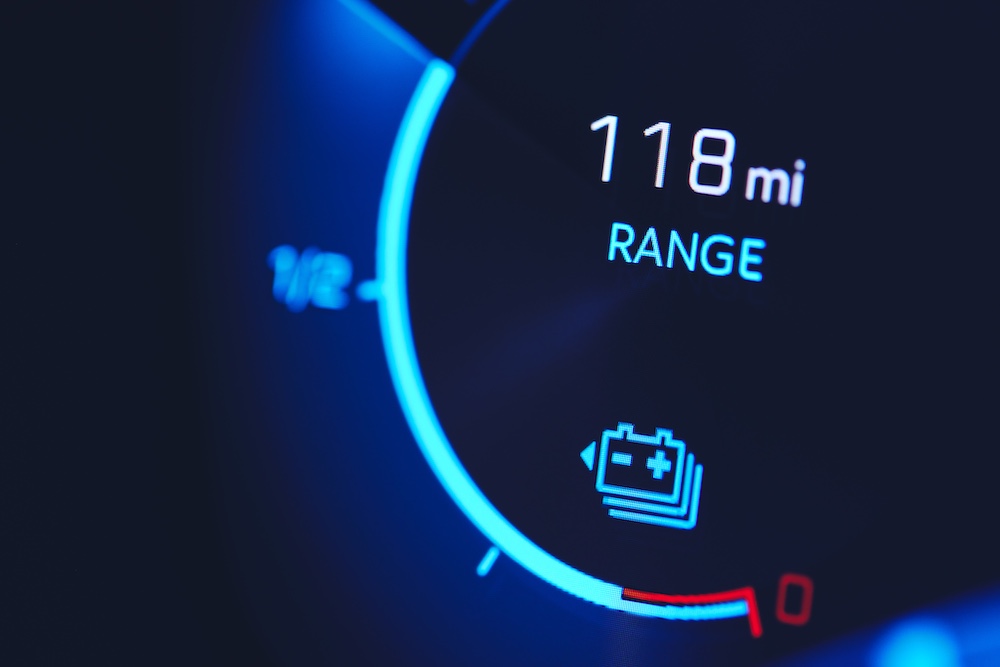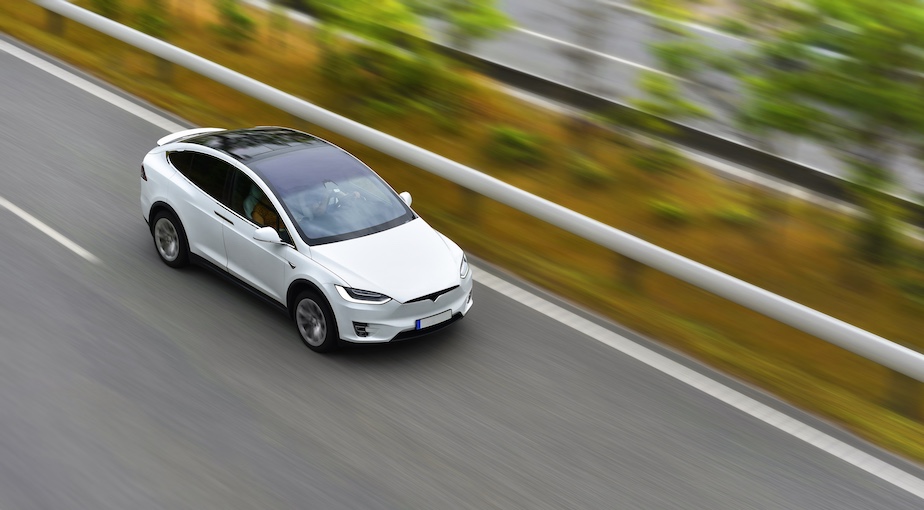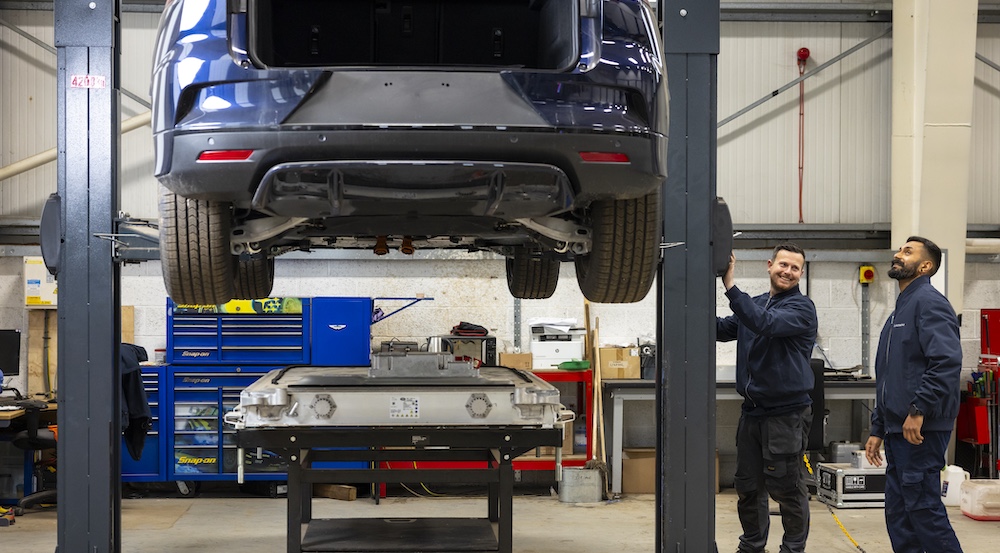How long do EV batteries last? EV performance explained
Modern EV batteries typically last 15-20 years. With proper care and charging habits, battery packs retain over 90% of their original capacity after years on the road. Advances in battery chemistry continues to improve EV reliability, range retention, long-term performance and an EV battery’s lifespan.
If you’re thinking of making the switch to an electric vehicle, you may be wondering ‘how long do EV batteries last?’ You’re not alone. Battery lifespan is a concern for 48% of UK drivers who have test-driven an EV.
While battery degradation and longevity challenges were prevalent in early EV models, the picture is very different now, with many EVs maintaining performance as long as petrol and diesel vehicles.
From performance, ICE (internal combustion engine) comparisons and how you can protect your EV’s battery to ensure long-term reliability. This guide covers everything you need to know about EV battery lifespan.
How long do EV batteries last on average?
Many manufacturers provide a battery warranty for up to 8-years or 100,000-miles, with most EV batteries lasting up to 15-20 years if properly cared for.
EV lifespan vs ICE: How do electric cars compare?
Comparing the EV lifespan vs ICE, research shows electric vehicles can last up to 124,000 miles, or 18.4 years, compared to 18.7 years for petrol, and 16.8 years for diesel vehicles.
Thanks to rapidly advancing technologies and improved battery health monitoring, the market could see advanced battery longevity and range retention, causing EV lifespan to surpass petrol and diesel cars in the near future.
Understanding EV battery capacity and performance over time
EV battery capacity is the total amount of energy your battery can store, measured in kilowatt-hours (kWh). Over time, all batteries experience gradual battery degradation, meaning they hold slightly less charge and deliver a shorter driving range than when new.
This degradation happens very slowly and has minimal impact on long-term EV performance. Most manufacturers include battery warranties, typically eight years or 100,000 miles, which covers excessive capacity loss. However, in practice, many EVs retain over 90% of their original battery capacity after years on the road.
As technology advances, battery durability and range retention are expected to keep improving, giving drivers greater confidence in the lifespan and reliability of electric vehicles.
How does EV range retention decline in comparison to battery degradation?
An EVs range is linked to battery degradation. As the battery ages and its capacity gradually decreases, the total distance your vehicle can travel on a full charge slowly reduces.
For instance, if your EV originally had a 50-kWh battery and a range of 200 miles, a 5% loss in capacity over five years would reduce the battery to 47.5-kWh and range to roughly 190 miles.
This is a slow, predictable decline and part of normal battery ageing, inly having a modest impact on range retention and long-term EV performance.
What affects EV battery lifespan?
From charging to driving habits, there are several factors that can impact your EV battery lifespan. Let’s break these down.
Charging habits
Using fast, rapid or ultra-rapid charging impacts your EV battery over time. This is because fast charging generates more heat, and doing this on a regular basis can speed up your battery degradation.
Driving speed and load
Frequent driving at high speeds, or with heavy loads creates more heat, plus wear and tear, contributing to battery degradation.
Similarly, regular long journeys and high annual mileage mean more charging cycles for the vehicle. This can have a small impact on battery lifespan. However, if you’re largely charging at home and following best practice, the impact is likely minimal.
Temperature and climate
Extreme cold weather can temporarily reduce performance and range for that charge cycle. This is largely due to the cold slowing down the chemical reactions and preventing the battery from discharging efficiently.
On the other hand, consistent exposure to hot weather can lead to long-term battery health, because excess heat accelerates chemical reactions that lead to cell degradation. While this can gradually reduce the battery’s total capacity and lifespan, modern EVs are built with thermal management systems, meaning temperature effects are minimal with little measurable impact on battery lifespan overall.
Battery chemistry and software management
A battery’s chemistry can impact the expected lifespan. Lithium iron phosphate (LFP) packs generally last longer and tolerate frequent charging well but usually deliver lower range and energy density. Nickel cobalt manganese (NCM) packs on the other hand, offer higher performance and range, yet are typically more prone to faster chemical wear over time.
Software and battery management systems (BMS) also shape longevity by managing the state of charge, temperature, and charging speeds to keep cells in their optimal window and reduce stress.
Keeping software updated and avoiding long periods at 0% or 100% helps the BMS protect battery health across the vehicle lifecycle.
How to extend your EV battery lifespan
While the vehicle has systems in place to protect the battery lifespan which often lasts 15-20 years, there are a few simple steps you can take to protect your EV’s reliability.
Stick to good EV charging habits
Following a few best charging habits can help minimise stress and maintain range retention:
- Keep your battery charge between 20% and 80% for everyday use
- Don’t stay at 100% or 0% for extended periods of time – if charging for a long journey, aim to set off soon after
- Avoid regular rapid charging
Keep your software updated
Keeping your EV’s software updated plays a key role in battery health monitoring and protecting battery lifespan.
Software updates help your vehicle manage charging habits and temperature effects, such as automatically pre-heating or cooling the battery to maintain efficiency and preserve EV battery capacity. Similarly, they ensure optimal charging speed for long-term performance and better range retention.
Park in your garage or in the shade in hot weather
Parking your vehicle in a garage can help extend your EV battery lifespan by protecting it from extreme temperature effects that can accelerate wear over time.
If you don’t have access to a garage, aim to park in shaded areas during hot weather to preserve battery performance. Simple steps like these can make a difference to how long EV batteries last and overall lifespan.
Conclusion: How long do EV batteries last?
If you’ve been hesitating to make the switch and wondering how long EV batteries last, the data is reassuring.
Modern EV batteries are designed to outlast the vehicle, showing minimal degradation over time. Most manufacturers cover excessive wear under warranty, and real-world experience continues to prove strong EV reliability and long-term EV performance as battery technology evolves.
To support your battery health, follow best practice charging habits and store your vehicle away from harsh weather conditions where possible.
For more guidance on maintenance, charging and ownership costs, explore our EV hub.
EV battery lifespan FAQs
How long do EV batteries last before needing replacement?
Modern EV batteries are engineered for durability, with studies showing an average lifespan of 18.4 years and 124,000 miles travelled. In most cases, EV battery lifespan will outlast the vehicle itself, supporting strong EV reliability and long-term performance.
What warranty do EV batteries come with?
EV battery warranties vary by manufacturer but typically cover 8 years, or up to 100,000 miles. These warranties protect against unexpected faults and often cover excessive battery degradation. Always check your manufacturer’s terms to see what level of battery health protection is included.
Can an EV battery be repaired instead of replaced?
Yes. Depending on the issue, EV batteries can be repaired rather than replaced. Specialist technician can isolate and fix individual modules. This should always be the first option as it helps support the circular economy, keeping EVs sustainable.
How much does a replacement EV battery cost?
The cost of an EV battery replacement depends on the make, model and battery capacity. However, prices typically range from £5,000 and £10,000, with costs falling as technology advances. In most instances, EV battery replacement isn’t necessary, or will be covered in your manufacturer’s warranty.
Does frequent fast charging reduce battery life?
Yes. Frequent use of rapid or ultra-rapid chargers can contribute to faster chemical wear, potentially shortening how long your EV battery lasts. To protect battery health and support long-term EV performance, use slower home charging where possible, maintain your battery between 20% and 80% for daily use and keep your vehicle software updated.









